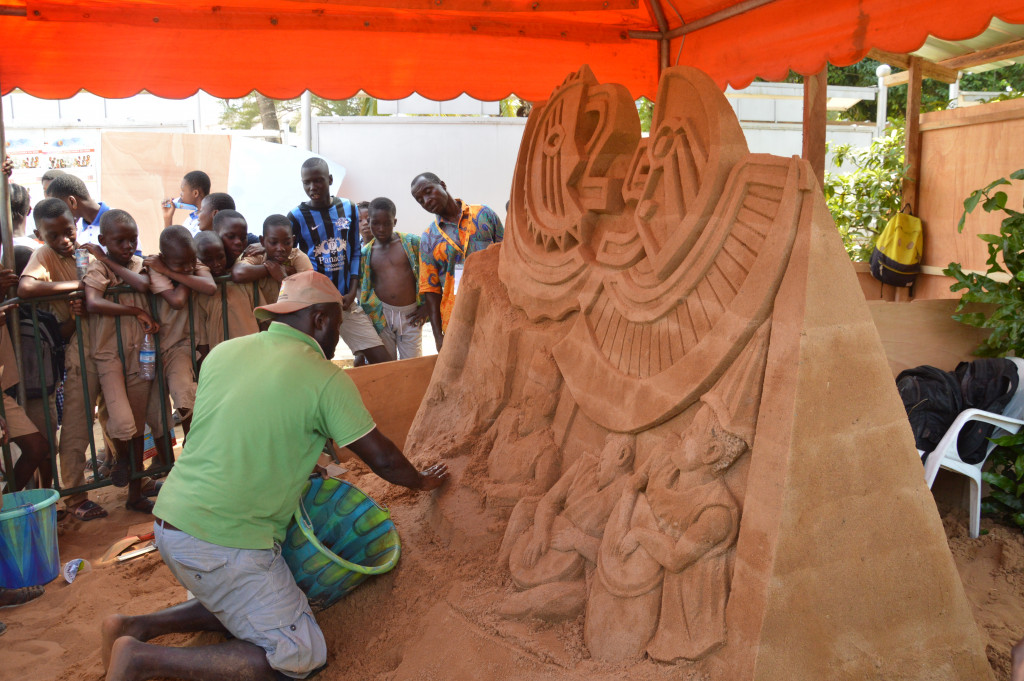The Market for Abidjan Performing Arts holds new promises
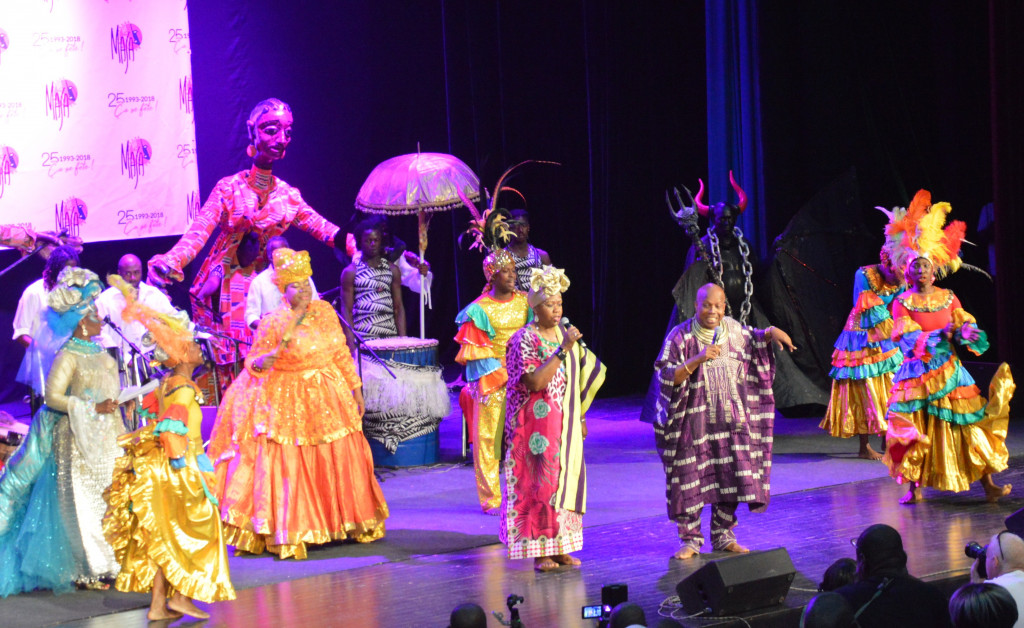
BY SERGES N’GUESSANT
PHOTOGRAPHY BY KOUASSI TOTO KOFFI
The Market for Abidjan Performing Arts, MASA, held March 10-17 in Abidjan, Côte d’Ivoire, showcased the breathtaking talents of hundreds of artists from all over the world in dozens of artistic fields, and provided the opportunity for officials, artists and experts to devise new strategies for the advancement of the performing arts in Africa. The mega business/cultural event, in its tenth edition, was first held in 1993 under the umbrella of the International Francophony Organization and the Ivorian Ministry of Culture.
MASA, a ground-braking initiative originally labeled the Market for the African Performing Arts, was born out of the Second Conference of the Ministers of Culture and Francophony held in Liege, Belgium, in order to strengthen the capacity of African professionals in the living arts (music, drama, and dance) by fostering the access of African productions and their authors to the international market.
A beautiful journey across the diversity of peoples and cultures
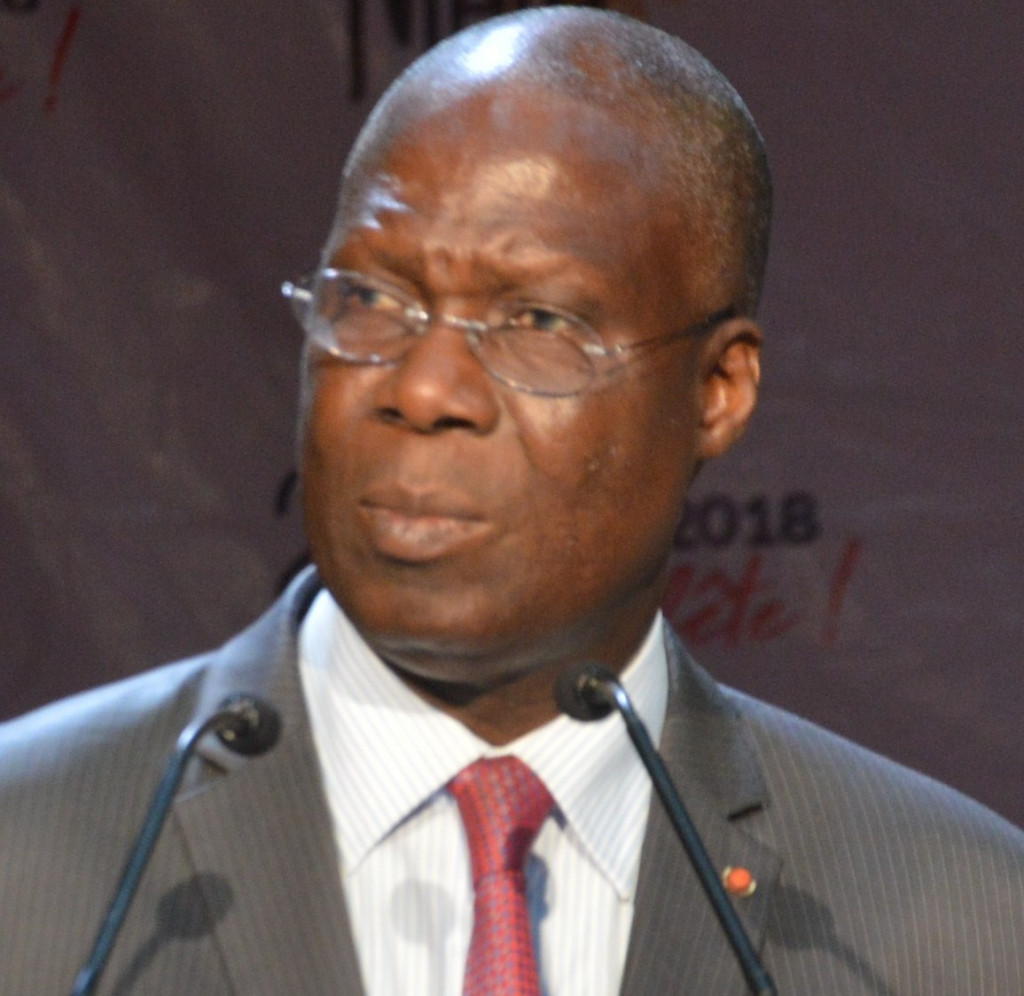
In his speech during the closing ceremony, the Ivorian Minister of Culture and Francophony, Bandama Maurice, reminded the audience of MASA’s objectives:
“MASA’s founding fathers dreamed of the promotion and the flow of the creations from the South throughout the world, especially in the North. Their decision was meant to fight poverty and give the creators of the South a chance. We can say the dream has come true for some.”
Bandaman also said that the momentum has unfortunately been stopped, because, due to the crisis of irregular immigration, “our creators fom the South, though they are legally invited to attend festivals in the North, are now denied visas.” The Ivorian official recalled the plan, dating back to a summit meeting of francophone heads of state, to initiate a passport in the francophone zone to enable thinkers, teachers, businessmen, creators and artists to move around freely. He then exclaimed, drawing a thunderous applause:
“Yes, let the artists move around freely; they will not live forever where they have no inspiration. They will go and come back to the source. Let the artists move around freely. It’s a matter of fairness and justice. It’s not fair that those from the North come on the stages of the South, and those in the South are not allowed to go in the North. That’s not fair.”
Productive panel discussions among professionals
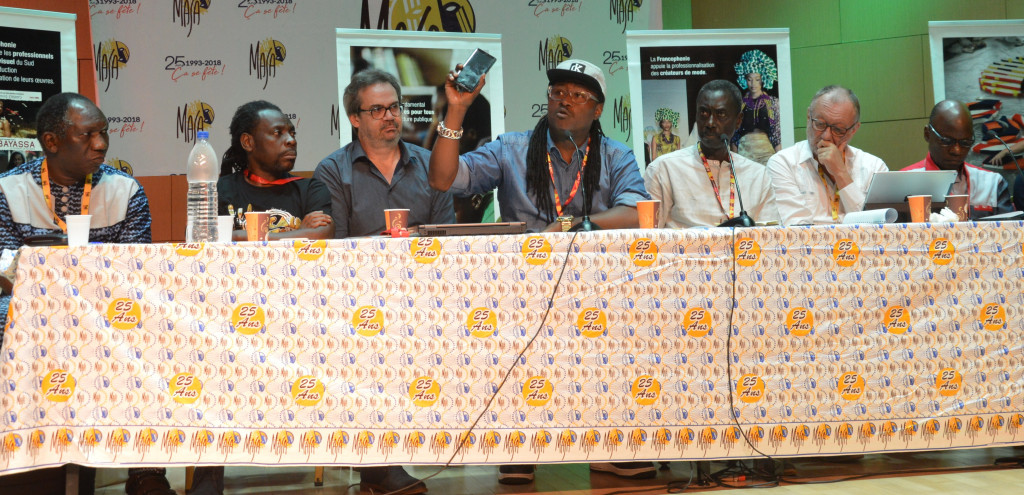
To celebrate its 25th anniversary, MASA initiated panel discussions among cultural actors to brainstorm about the financial returns of the performing arts. To address the generic theme “What economic models for the performing arts?” panelists discussed eight sub-themes. MASA itself, the International Theatre Institute, the International Francophony Organization, the Arterial Network, the Ivorian Copyrights Bureau, the International Confederation of Societies of Authors and Composers, the Kolatier, all pushing various initiatives, brought to a discussion table emeritus panelists from Africa, the Caribbeans, the Americas and Europe. The sub-themes included: “Back to MASA’s roots;” the market for the performing arts worldwide;” “Artists’ mobility;” “Investing in the dynamism of cultural consumption in Africa for a viable market;” “Compensation for private copy: what stakes for the cultural industry;” “Creativity for a better future for fashion;” “Second Maghreb-Sub-Saharan African cultural meeting.”
The panel discussion about the generic theme of MASA 2018 demonstrated the need to switch to a new economic model for the survival of festivals, the groups and their productions. With the chairman of the Ivorian High Authority for Audio-visual Communications, Ibrahim Sy Savané, serving as moderator, the panelists (doing away with empty rhetoric) shared with the audience their experiences relating to economic model. The comments from the audience supported the theory that it is virtually impossible for the cultural sector to count on the state’s financial support. It’s common knowledge that the artists look for assistance from foundations and private partners with compatible interests, even though the creators are sometimes compelled to tailor their works to their sponsors’ areas of interest. To get out of the old economic model, the participants called for pulling their energies together, co-production, participative management, networking, and the creation of an African digital league for the promotion of the arts, among other things.
152 shows, 61 for the market and 81 for the festival
MASA 2018’s success comes primarily from the market component. The Bernard Blin Dadié Cultural Palace in Treichville was the primary venue of this aspect of the event, with various performances, speed-meetings and fashion-shows. The French Institute, the Goethe Institute, the Abobo Cultural Center, and the Bressoles Park were used for the same purpose. The festival component was moved to the interior towns (Yamoussoukro, Bouaké, Korogho, Tiassalé, Bondoukou) and various neighborhoods in Abidjan: Koumassi (Inch’Allah Plaza), Yopougon (Ficgayo Plaza), Cocody (Saint Jean Plaza), Treichville (Canal aux Bois) for spread-out shows. The so-called Streets Arts productions in drama, dance, story-telling, slam, music, humour and fashion-shows, show-cased the vitality of the African cultural industry in its diversity.
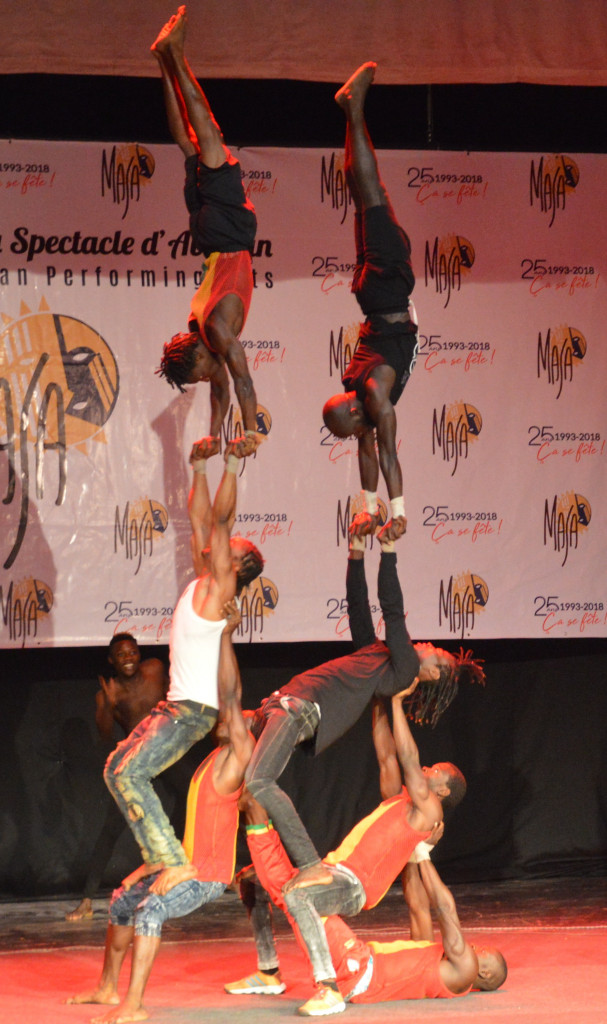
With their breathtaking performances, artists from Africa, the Caribbeans, the Americas, Europe and Asia built a magnificent cultural bridge over the continents. The Dodo Naaba Ambga Company (Burkina Faso), Ivoire Marionnettes (Côte d’Ivoire), the Mandingo Circus (Guinea Conakry), the Accroche-toi Company (Morocco), and the Afuma Company (Togo) are among the groups that performed the Street Arts. Story-telling was also part of the event, thanks to Fayçal Balattar (Algeria), Benoit Davidson (Canada), the Compagnie du Cercle (France), and Djaaphath (Chad). As far as dance goes, Agath Djokam (Cameroon) and Judith Olivia (Madagascar) proved bustling with energy. If the Baroro company (Mexico) made a big impression with its choreography of modern dance, Jouvay Fest (USA) stole the show with its Caribbean culture and the quality of its choreography and its colorful costumes. Adama Dahico (Côte d’Ivoire) Kissabaka Dada Félix (DRC), Frederick Gakpara (Togo) in Humor and Music, Professor Fang Huya (China), Naïnako (Madagascar), David Tayorault (Côte d’Ivoire), Cheickné Somané (Mali) and many others left their own marks on MASA 2018 which, in final analysis, heralded the diversity of the peoples and cultures.
A massive attendance beyond the organizers’ expectation
Professor Yacouba Konaté, managing director of the MASA, revealed in his final address to the attendants at MASA 2018 that the event drew 1,782 participants, including 1,182 artists, 270 professionals, 180 international reporters, and 150 members of official delegations. These numbers don’t include the local participants, that is 300 artists, 259 reporters, 140 technicians and volunteers. In terms of production, the 10th edition of the MASA is credited with 152 shows, 61 for the market and 81 for the festival. “For every 390 tickets issued by our services, at least four times that many tickets were purchased by the participants from Africa, the Caribbeans, Europe, the Americas and Asia,” added the managing director. In his closing remarks, Professor Konaté also stated that the 2018 edition of the MASA has brought a number of innovations, notably the number of programs devoted to children and the youth via the so-called “Young Audiences” programs, the public reading sessions and slam, the muppet shows and training programs. The managing director stressed:
“It’s a way for us to pass on the torch to the young generations. At 25, the MASA had to think about the future and the re-invention of the actors and the audiences for new types of performing arts.”
He also praised the now prominent role of the diasporas and the involvement of regional organizations including the West African Economic and Monetary Union, the Economic Community of West African States, and the Entente Council.
The Young Technician Ismael Diaby’s Award presented by the International Francophony Organization went to Aminata Coulibaly, and the ECOWAS (Economic Community of West African States) Award for the Young Humorist went to President Veskaye.
The MASA, a private organization headquartered in Abidjan, entered into an agreement with the Côte d’Ivoire government in January 1999. Created by the Second Conference of the Ministers of Culture and Francophony in 1990 under the name the Market for the African Performing Arts, it substituted “Abidjan” to “African” on the occasion of its just-concluded tenth edition in 25 years.
Walking in the footsteps of the Pan-African Festival of Cinema of Ouagadougou, and the Biannual of Contemporary Art of Dakar, Abidjan takes its rightful place as the cultural capital of Africa. Now down on the 10th edition, the curtains will be up again on the MASA in 2018.
